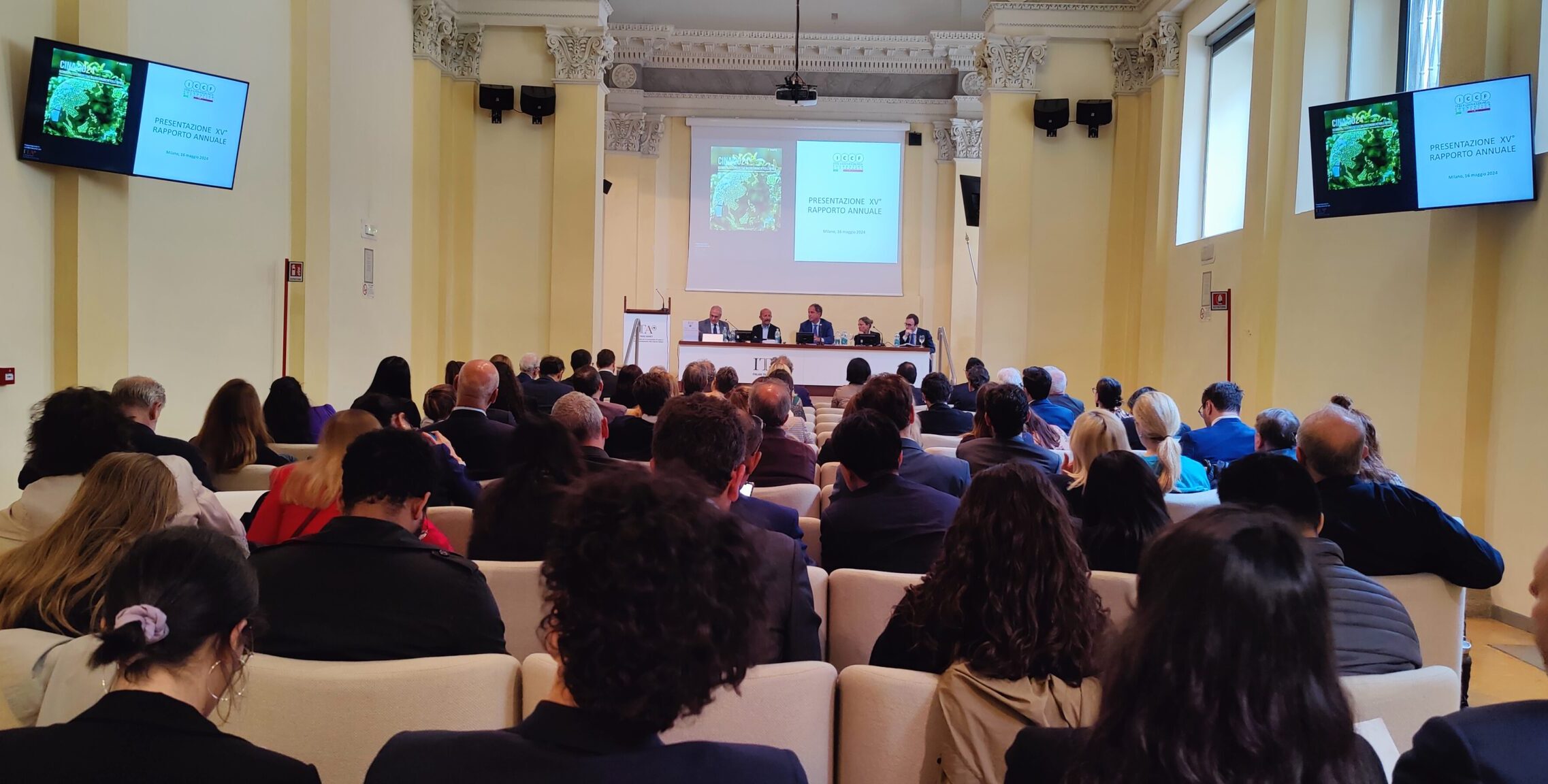"China 2024 | Political Scenarios and Macroeconomic Outlook for Enterprises", the fifteenth edition of the Annual Report of the Italy China Council Foundation-ICCF, was presented today at Palazzo delle Stelline, in Milan, in the presence of the Director of ITA Agency and the ICCF President, the Chief Representative of the China Council for the Promotion of International Trade - CCPIT Milan and numerous entrepreneurs and professionals representing the companies that are part of the ICCF network.
Since last year, the study produced by the ICCF Study Centre has been presented in a new format, divided into two parts that are published in spring and autumn, in order to be a more usable and up-to-date product. The Report, which also sees the involvement and contribution of ICCF Members, represents one of the most comprehensive outlooks on China currently available in Italy. Drafted in Italian, rich in original data and studies, the guide is a useful tool for all those small, medium and large enterprises that want to bring their business to China, a market that can no longer be done without.
This first part contains in-depth analyses of economic trends, key domestic political developments in the Chinese government and its international relations, particularly with Italy, the EU and the US. It also contains a detailed guide to China's path towards sustainability, enriched by an analysis of the country's response to global environmental, social and governance (ESG) requirements.
"The choice of this year's theme was inevitable - stated Mario Boselli, ICCF President in his introductory greeting -. Not so long ago, it seemed unthinkable that China and sustainability could converge. However, in recent years the People's Republic has assumed an increasingly significant role in the context of global sustainability, showing a growing and proactive commitment, despite some obstacles. The government's ambitious goals, together with the commitment of the private sector, provide positive hope for the future".
IN SUMMARY After exceeding its annual growth target for 2023 (+5.2%), the Chinese economy continued to expand, recording real GDP growth of 5.3% in the first quarter of 2024. This expansion, which occurred despite a climate of international uncertainty and significant geopolitical tensions, highlights the exceptional resilience of the PRC.
The development of the technology sector - embracing artificial intelligence, biomedicine and quantum mechanics, among others - has played a key role in this development, consolidating China's position as a global industrial leader. Huge investments in emerging sectors such as photovoltaics, lithium-ion batteries and electric vehicles have led to a substantial increase in Chinese exports. On the other hand, this trend has also raised concerns among Western governments about potential unfair competition practices, often supported by substantial government subsidies, which could culminate in the imposition of tariffs on some Chinese products.
Despite the positive results at the beginning of the year, China faces deflationary pressures, which may limit domestic consumption and investment opportunities, and a persistent crisis in the real estate sector, which negatively affects consumer and business confidence. In response, the Chinese government has implemented prudent monetary policies and moderate fiscal stimuli. On the environmental side, efforts to mitigate climate change have been intensified, aiming to reach peak CO2 emissions by 2030 and carbon neutrality by 2060, targets in line with the Paris Agreement. Renewable energies contribute about 30% of national electricity generation, reflecting a growing commitment to sustainability.
The year 2024 represents a pivotal year for global geopolitics, with major events such as the European elections in June and the US presidential elections in November, which could prove decisive for international relations and global economic policies. The European Union persists in its three-dimensional approach towards China, treating it simultaneously as partner, competitor, and rival. This policy may evolve as a result of election outcomes and increasingly tend towards long-term de-risking strategies, thus emphasising the rivalry component, in line with the approach adopted by the United States. Global tensions such as the war in Ukraine and the Israeli-Palestinian conflict further complicate the international landscape.
